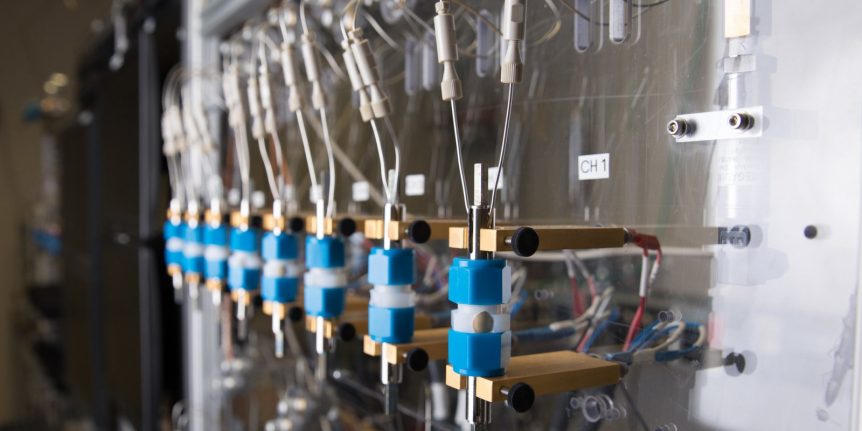Dr. Jangwoo Kim has a resume’ that puts a great many qualifications together that spell “battery designer.” He has a B.S. degree in chemical engineering from Yonsei University, one of three “Sky Universities” regarded as South Korea’s most prestigious. At Cornell University, he received M. S. and Ph.D degrees in chemical engineering, and then worked for LG Chem on lithium-ion battery pack design. After that, he returned to Cornell to work on his Ph.D, investigating “next-generation rechargeable battery technology, including Li-Air and Li-Sulfur, specialized in inorganic nanomaterial synthesis and polymer processing via an electrospraying method.” He joined IBM Research, Almaden Research Center in 2016 and participated in the Battery 500 project, aiming to build a battery pack with a specific energy of 500 watt-hours per kilogram. We see the project leader, Dr. Winfred Wilcke, in a short video about that project. Battery 500 intended to reduce or eliminate heavy metals such as cobalt from the cells. Cobalt is not rare, but …
IBM’s Battery 500 Project
One of several presenters at this year’s sixth annual Electric Aircraft Symposium held by the CAFE Foundation at Santa Rosa, California on April 27 and 28 this year, Dr. Winfried W. Wilcke, senior, Manager of Nanoscale Science and Technology at IBM’s Almaden Research Center, initiated and heads up the Battery 500 project, a coalition to create a battery that will give electric cars a 500-mile range. Partners include the United States Department of Energy National Laboratories, the Stanford Linear Accelerator National Laboratory, and Stanford University. Asahi Kasei and Central Glass have recently joined the enterprise, chosen for their expertise in battery separator membranes and electrolytes respectively. The Project’s goal is to eliminate range anxiety for EV owners and use the excess capacity of the electrical grid at night for charging. Dr. Wilcke explained that if all U. S. drivers had battery-powered electric cars, 73 percent of those EVs could be recharged at night with excess electricity from the grid. Given …

